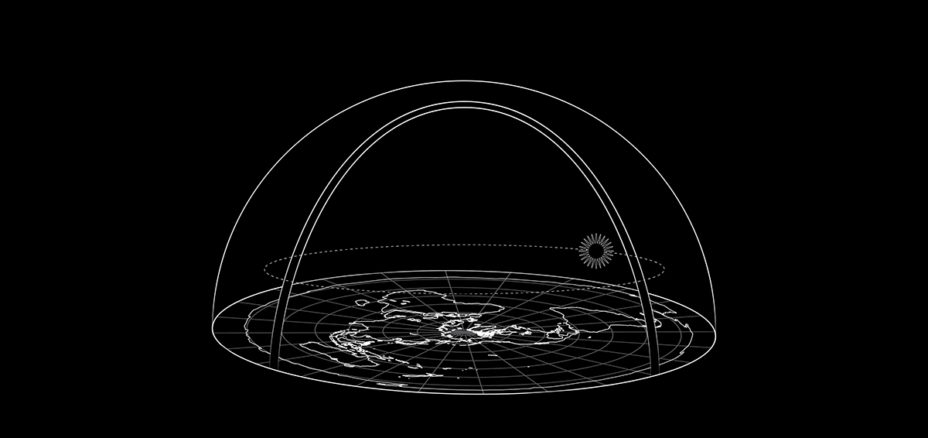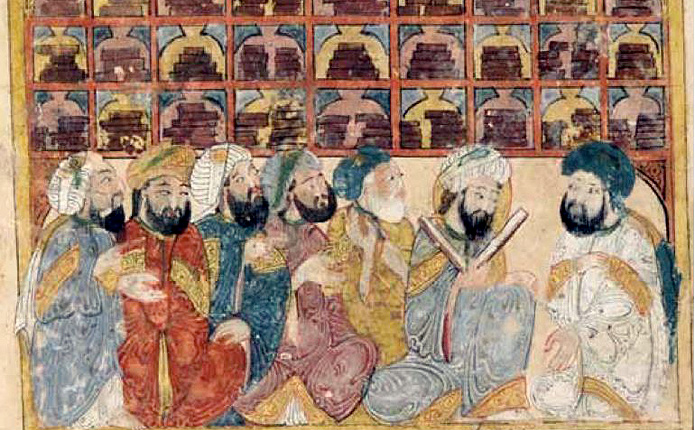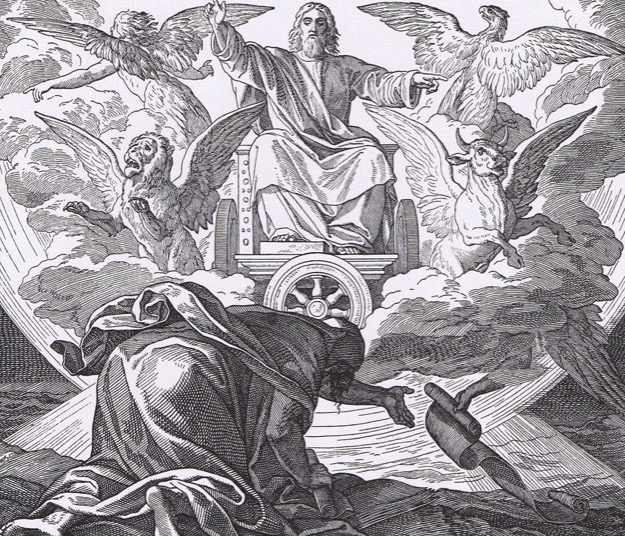So we have already discovered why Muhammad was seeking a spiritual encounter in a cave, and we have learned how this encounter would be interpreted by a person of his time. Now we find out what the Power that Muhammad encountered said.
These are the actual contents of the first five verses (or ayat) of Surah 96, called al-Alaq, or The Clot. I use Yusuf Ali as my foundation, but I also use many other translations as well as the interlinear text with word-by-word literal translations to get a more accurate rendition.
Unfortunately, many translators of the Quran want nothing more than to add their own unwarranted interpolations into the text, even sometimes deliberately corrupting the translation to hide the meaning. They feel free to do this because a translation of the Quran is often called “a translation of the meaning of the Quran” because of the Islamic principal that the “true Quran” is only in “perfect Classical Arabic.” Because of Islamic scholars’ low view of translation, they will deliberately alter the meaning of words to make it sound better because deceit is admirable when it’s done for Allah’s cause. In addition, the mental isolation of the Islamic scholars cause them to misunderstand what is going on in their own texts. (To be fair, this happened in Christianity, too. Christians literally forgot the Name of their God because it was obscured by scribal traditions. But Christians knew they would not receive any more prophets from God until the end times, so this was not a big deal for them. The obscurity of God’s name was actually useful in testing these false prophets later on, as we shall see, so it could very fairly be regarded as providential that it was hidden for a time.)
Let us begin in ayah 1:
- Call words! in the name of your Lord, He-Who-Created–
- He created man, from a blood-clot:
- Call words! And your Lord is the most generous,–
- He Who taught by (the use of) the pen,–
- Taught man that which he knew not.
As a first revelation, this is extremely strange. “Call words! in the name of your Lord,” it says. What name? Who is the Lord? If Muhammad doesn’t know the Lord’s name, how can he possibly read in his name? How does this make any sense? This is the very first time that Muhammad has been visited, so how can he possibly use a name he doesn’t know?
Most Muslims don’t think about this. It’s not their fault. They’re approaching this ayah with all the stuff that they have in their heads already about Allah and Muhammad, so they think they already know who the “Lord” is here.
But Muhammad could not know this. Despite some attempts at revision, Muhammad was a polytheist before. There’s an Islamic folk belief that not only was Muhammad always a monotheist, but so were all of his direct male-line ancestors. This is clearly absurd. If he had not been a polytheist, his family would not have converted, because he would have raised his daughters as monotheists. If he had not been a polytheist, he would not have participated in the various pagan activities that we have Islamic records associating him with. If he had not been a polytheist, no one would have been surprised when he told other people about monotheism. If his ancestors had not been polytheists, then his grandfather would have not given his uncles the names of pagan gods, and his grandfather would not have been named after a pagan god himself. Every one of his relatives were polytheists at the beginning of Islam, according to all the Islamic sources. It is completely ridiculous to pretend that there was some kind of line of pure believers, especially when even Islamic sources preserve stories of the pagan practices Muhammad used to do.
The message that was delivered to Muhammad was entirely new, and he did not know whom it came from even after it was delivered (as we will see from his reaction). If Muhammad was already a monotheist, he could not have been confused about at least who the Power was claiming to be. But Muhammad was extremely confused. So how can the “in the name of your Lord” make any sense whatsoever unless he is told what that name is?
Well, he is told, very plainly in the text, in the same ayah: the name of his Lord is “He-Who-Created.”
This requires digging into the Arabic. The phrase here is الَّذِي خَلَقَ, alladhī khalaqa. You don’t have to know Arabic to know what this means, but you do have to know grammar. The first word is a masculine singular relative pronoun. Our word “who” is a relative pronoun for human-like beings, but it has no gender or number. To get that information in English, you have to add another word. To make it masculine singular, you add the pronoun “he.” So “he who” is the correct full translation. You can skip the extra word and still have a perfectly grammatical English sentence, but it would not have the complete meaning of the Arabic, and leaving it out here specifically robs this ayah of its sense. The next word, created, is a third person masculine singular perfect verb. A perfect verb describes and action that has completed in the past. It is over. We don’t use past imperfect verbs very much in English, but many languages do, and when they do, the distinction between perfect and imperfect action is very important.
So what we have here is the Power giving Muhammad a command and a name, the name the Power is telling Muhammad to read by, and that name is He-Who-Created. Is this, in fact, the Creator God’s name, merely rendered in Arabic? The verb form here is very important because even though I’ve been rendering Yahweh as “Creator,” it is not actually a noun (though it can be used as one) and it is not descriptive of a finished (perfect) action. It is an imperfect action, meaning one without an end. (Causative imperfect tenses are sometimes even glossed in the future tense in English because of that.)
Any educated Jew at this time would have still known that the name of the God of Abraham is Yahweh, He-Causes-To-Be or He-Causes-Being, not He-Who-Created, a finished action. Jesus Christ even makes a point of this when he said, “My Father is working until now, and I am working” (John 5:17). The phrase “until now” emphasizes the continuing nature of Yahweh’s causing to be that is embedded in his Name–Jesus means “up until this very day, with no intention of stopping.” He used a different word (“working”) because of the context of the Sabbath, but the continuing nature of Yahweh’s work is a central part of his nature as had actually been discussed by Jewish theologians, who had concluded that God, unlike man, must “work” on the Sabbath to sustain the universe. Jews understood this because the verse that comes next is, “This was why the Jews were seeking all the more to kill him, because not only was he breaking the Sabbath, but he was even calling God his own Father, making himself equal with God.” If you know that Name of God, you know that Jesus was making a claim to godhood because he was referencing God’s nature embedded in his name. If you do not know the Name of God, then his words are pretty meaningless.
So to a Jew, the Power’s declaration would have been a clear attempt to usurp the name of Yahweh, but it would have been a swing and a miss. Arabic, like Hebrew, has a causative form. The Power could very well have said “He-Causes-To-Be” in Arabic, even in a single word. But the Power does not. The Power uses a more limited verb, to create, and he used a form to signify finished action in the past. So an educated Jew would know instantly two things about this Power: 1) it was claiming to be Yahweh, and 2) it was not Yahweh, because it got Yahweh’s Name and therefore nature wrong.
Muhammad was not a Jew, and so he not only missed the second point, but he missed the first point, too. He never figured out that the Power who spoke to him immediately gave him a Name from the very first sentence that he spoke. There seems to be some defensiveness in the sources later on, because Muhammad later said that Allah has been assigned a full 99 names:
Allah’s Messenger (ﷺ) said, “Allah has ninety-nine names, i.e. one-hundred minus one, and whoever knows them will go to Paradise.
Sahih al-Bukhari 2736
There are ninety-nine names of Allah; he who commits them to memory would get into Paradise. Verily, Allah is Odd (He is one, and it is an odd number) and He loves odd number. And in the narration of Ibn ‘Umar (the words are):” He who enumerated them.”
Sahih Muslim 2677 a
These probably come around the same time that surah 7 was revealed–any Jew would have tested a claim of a divine revelation by asking Muhammad what the Creator God’s name was, and if he replied “Allah,” they would have responded that this could be a name for the Creator God but it was not the name of the Creator God. Muhammad waves away all criticisms then by declaring that the Creator God has 99 names, and then he assembled a list of titles and attributes to be used as names. But the Power had already laid hold of a name–a Name, in fact–of “He-Who-Created.” Even when the 99 names were assembled, the one name that the Power had introduced himself with is not on the list. Instead, the generic noun “the Creator,” or al-Khāliq, is given, in the same form as all the other names (or, more properly, titles or descriptions) of Allah. Muhammad also insisted that “the Most Generous One,” al-Karīm, is a name of Allah, too, but in this surah, “most generous” is simply an adjective describing the Power. There is only one place in this surah where the Power calls himself something other than the generic Lord, and that is when he says “He-Who-Creates,” just as he was literally telling Muhammad that he is being commanded in that name.
Here is another point, too: the Power that spoke to Muhammad did not know that he would be misunderstood. If Yahweh had spoken to Muhammad, he would have known exactly what Muhammad could and could not understand. He would not have given his Name in a way that was misunderstood by the recipient. Yahweh is omniscient. Other Powers are not. Someone today might say that “He-Who-Created” is close enough to “He-Causes-To-Be” to really be the same name, but they can’t say that Yahweh, the omniscient creator, would choose someone who couldn’t understand is introduction.
The question of what happened in the cave is a vexed one. Many secular scholars imagine that Muhammad just made everything up, or that Muhammad didn’t exist at all. To me, there are far too many cues to believe that. Something did happen. Muhammad reported it accurately (despite later anachronistic embellishments that distorted the context of Muhammad’s early life). Being rooted in the understandings of ancient people, having in your head what they would have in their heads, we understand perfectly well what was going on with far more accuracy than Muhammad could.
See the main page on Surah 96:1-5 to continue.





